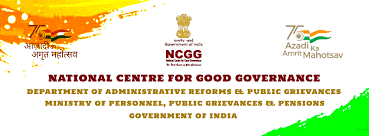





Copyright infringement not intended
Context: The National Centre for Good Governance (NCGG) is increasing its capacity to train more civil officials from other nations in response to an increase in demand for its programmes, including those in public policy and governance.
Details
Must Read Articles:
National Centre for Good Governance:
|
PRACTICE QUESTION Q. Consider the following statement about the National Centre for Good Governance (NCGG). 1. It is an autonomous institution under the Ministry of Home Affairs. 2. It aims to promote good governance, policy reforms, capacity building and training of civil servants and technocrats in India and other developing countries. 3. It works with various stakeholders, including private sector partners to enhance the quality and effectiveness of governance. Which of the following Statement is/are correct? (A) 1 and 2 only (B) 2 and 3 only (C) 1 and 3 only (D) 1, 2 and 3 Answer: B Explanation: Statement 1 is incorrect: The National Centre for Good Governance (NCGG) is an autonomous institution under the Ministry of Personnel, Public Grievances and Pensions of the Government of India. It was established in 2014 as a successor of the National Institute of Administrative Research (NIAR), which was founded in 1995 by the Lal Bahadur Shastri National Academy of Administration (LBSNAA), the premier training institute for civil services in India. Statement 2 is correct: The NCGG aims to promote good governance, policy reforms, capacity building and training of civil servants and technocrats of India and other developing countries. It also serves as a think tank on various aspects of governance, such as decentralization, social accountability, service delivery, public sector management, rural development, education, water, sanitation and hygiene (WASH), etc. Statement 3 is correct: The NCGG works with various stakeholders, such as central and state governments, local bodies, civil society organizations, academic institutions, international agencies and private sector partners to enhance the quality and effectiveness of governance in India and abroad. The NCGG organizes webinars, workshops, seminars, conclaves and other events to disseminate knowledge and best practices on governance. It also conducts research studies and publishes reports and papers on relevant topics. |






© 2025 iasgyan. All right reserved